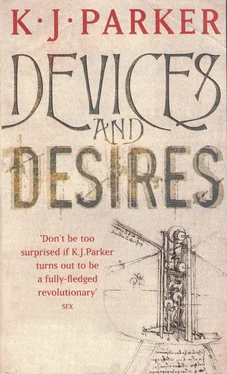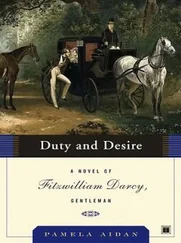K Parker - Devices and Desires
Здесь есть возможность читать онлайн «K Parker - Devices and Desires» весь текст электронной книги совершенно бесплатно (целиком полную версию без сокращений). В некоторых случаях можно слушать аудио, скачать через торрент в формате fb2 и присутствует краткое содержание. Жанр: Фэнтези, на английском языке. Описание произведения, (предисловие) а так же отзывы посетителей доступны на портале библиотеки ЛибКат.
- Название:Devices and Desires
- Автор:
- Жанр:
- Год:неизвестен
- ISBN:нет данных
- Рейтинг книги:3 / 5. Голосов: 1
-
Избранное:Добавить в избранное
- Отзывы:
-
Ваша оценка:
- 60
- 1
- 2
- 3
- 4
- 5
Devices and Desires: краткое содержание, описание и аннотация
Предлагаем к чтению аннотацию, описание, краткое содержание или предисловие (зависит от того, что написал сам автор книги «Devices and Desires»). Если вы не нашли необходимую информацию о книге — напишите в комментариях, мы постараемся отыскать её.
Devices and Desires — читать онлайн бесплатно полную книгу (весь текст) целиком
Ниже представлен текст книги, разбитый по страницам. Система сохранения места последней прочитанной страницы, позволяет с удобством читать онлайн бесплатно книгу «Devices and Desires», без необходимости каждый раз заново искать на чём Вы остановились. Поставьте закладку, и сможете в любой момент перейти на страницу, на которой закончили чтение.
Интервал:
Закладка:
Orsea sighed. He wanted to shrug his shoulders and ride on-he actually wanted to do that; his own callous indifference shocked him. 'Leave it,' he heard himself say. 'Those lancers are worth more to us than a regiment of infantry. Keep them out of harm's way, and get them off the field as quick as you can.'
Miel didn't answer, just pulled his horse's head round and stumbled away. Orsea watched him till he was out of sight over the horizon. It'd be nice to think that over there somewhere, screened by the line of stunted thorns, was that other world of an hour ago, and that Miel would arrive there to find the army, pristine and unbutchered, in time to turn them back.
Orsea still wasn't quite sure what had happened. Last night, camped in the middle of the flat plain, he'd sent out his observers. They started to come back around midnight. The enemy, they said, was more or less where they were supposed to be. At most there were sixteen thousand of them; four thousand cavalry, perched on the wings; between them, ten thousand infantry, and the artillery. The observers knew their trade, what to look for, how to assess numbers by counting camp fires, and as each one reported in, Orsea made a note on his map. Gradually he built up the picture. The units he was most worried about, the Ceftuines and the southern heavy infantry (the whole Mezentine army was made up of foreign mercenaries, apart from the artillery), were camped right in the middle, just as he'd hoped. His plan was to leave them till last; break up the negligible Maderi infantry and light cavalry on either side of the centre, forcing the Mezentines to commit their heavy cavalry to a long, gruelling charge across the flat, right down the throats of his eight thousand archers. That'd be the end of them, the Bareng heavy dragoons and the lancers. If a tenth of them made it through the arrow-storm, they'd be doing outstandingly well; and then Orsea's own lancers would take them in the flank, drive them back on their own lines as the wholesale roll-up started. In would come the horse-archers from the extreme ends of the line, shepherding the Mezentines in on their own centre, where the Ceftuines would've been standing helplessly, watching the world collapse all around them. By the time the fighting reached them, they'd be hemmed in on all sides by their own defeated, outflanked, surrounded comrades. The lancers would close the box, and the grand finale would be a long, one-sided massacre.
It had been that, all right.
A deep, low hum far away to his left; Orsea stood up in his stirrups, trying to get a better view, but all he could see was dust. He couldn't even remember which of his units was over that way now. Every part of his meticulously composed line was out of place. When the disaster struck, he'd tried to fight back, pulling men out of what he thought was the killing zone, only to find he'd sent them somewhere even worse. He didn't understand; that was what made him want to sob with anger. He still didn't know how they were doing it, how the bloody things worked; all he'd seen was the effects, the clouds and swarms of steel bolts, three feet long and half an inch thick, shot so fast they flew flat, not looped like an ordinary arrow. He'd been there when a volley struck the seventh lancers. First, a low whistling, like a flock of starlings; next, a black cloud resolving itself into a skyful of tiny needles, hanging in the air for a heartbeat before swooping, following a trajectory that made no sense, broke all the known rules of flight; then pitching, growing bigger so horribly fast (like the savage wild animals that chase you in dreams), then dropping like hailstones all around him; and the shambles, the noise, the suddenness of it all. So many extraordinary images, like a vast painting crammed with incredible detail: a man nailed to the ground by a bolt that hit him in the groin, drove straight through his horse and into the ground, fixing them both so firmly they couldn't even squirm; two men riveted together by the same bolt; a man hit by three bolts simultaneously, each one punched clean through his armour, and still incredibly alive; a great swathe of men and horses stamped into the ground, like a careless footstep on a flowerbed full of young seedlings. Just enough time for him to catch fleeting glimpses of these unbelievable sights, and then the next volley fell, two minutes of angle to the left, flattening another section of the line. He couldn't even see where the bolts were coming from, they didn't seem to rise from the surface of the earth, they just materialised or condensed in mid-air, like snow.
As he watched the bolts fall all around him, he couldn't understand why he was the only one left alive, or how they could aim so precisely to kill everybody else and leave him alone. But of course they could. They could do anything.
That was when he'd given his one sensible order, just over an hour ago. A few minutes later, the volleys stopped; there were no coherent bodies of men left to shoot at, and the Mezentine cavalry was surging forward to begin the pursuit and mopping-up. So hard to judge time, when the world has just changed and all the rules are suddenly different, but his best guess was that the disaster had taken ten minutes, twelve at the very most. You couldn't boil a pot of water in that time.
Just a simple steel rod, pointed at one end; he reached out and pulled one out of the ground as he rode. You could use it as a spit; or three of them, tied together at the top, would do to hang a pot from over the fire. They stood up out of the ground, angled, like bristles on an unshaven chin, and there were far too many to count. It'd take weeks just to come round with carts and collect them all up-did the Mezentines do that, or did they leave them, as a monument of victory and a warning to others, till they flaked away into rust? He could imagine them doing that, in this dead, unused plain, which they'd shot full of pins.
I'd have liked just to see one of their machines, he thought, as a sort of consolation prize; but I guess I haven't done anything to deserve that privilege.
He looked back over his shoulder, to see how close the Mezentine cavalry was; but they weren't closing. Instead, they seemed to be pulling back. Well, he could understand that. Why risk the lives of men, even paid servants, when you've got machines to do the work? They'd made their point, and now they were letting him go. So kind of them, so magnanimous. Instead of killing him, they were leaving him to bring the survivors home, to try and find some way of explaining what had become of the dead. (Well, there was this huge cloud of steel pins that came down out of the sky; and the dog ate my homework.) They were too cruel to kill him.
At the thorn hedge, he found what was left of his general staff; twenty out of thirty-six. His first reaction was anger; how could he be expected to organise a coherent retreat without a full staff? (So what are you going to do about it? Write a strongly worded letter?) Then it occurred to him that he wasn't ever going to see those missing faces again, and there was a moment of blind panic when he looked to see who was there and who wasn't. Key personnel-four out of five of the inner circle, but the missing man had to be Faledrin Botaniates; how the hell am I going to keep track of duty rosters without Faledrin? The others, the ones who weren't there, were-The shame burned him, he'd just thought expendable. He forced himself to go back and repeat the thought. It'd be difficult, a real pain in the bum, to have to cope without them, but a way could be found. Therefore, they were, they'd been, expendable.
There, he'd thought it; the concept he'd promised he'd never let creep into his mind, now that he was the Duke of Eremia. That coped off the day's humiliations, and he was right down there with all the people he despised most. Fine. Now he'd got that over with, it might be an idea to do some work.
Читать дальшеИнтервал:
Закладка:
Похожие книги на «Devices and Desires»
Представляем Вашему вниманию похожие книги на «Devices and Desires» списком для выбора. Мы отобрали схожую по названию и смыслу литературу в надежде предоставить читателям больше вариантов отыскать новые, интересные, ещё непрочитанные произведения.
Обсуждение, отзывы о книге «Devices and Desires» и просто собственные мнения читателей. Оставьте ваши комментарии, напишите, что Вы думаете о произведении, его смысле или главных героях. Укажите что конкретно понравилось, а что нет, и почему Вы так считаете.












